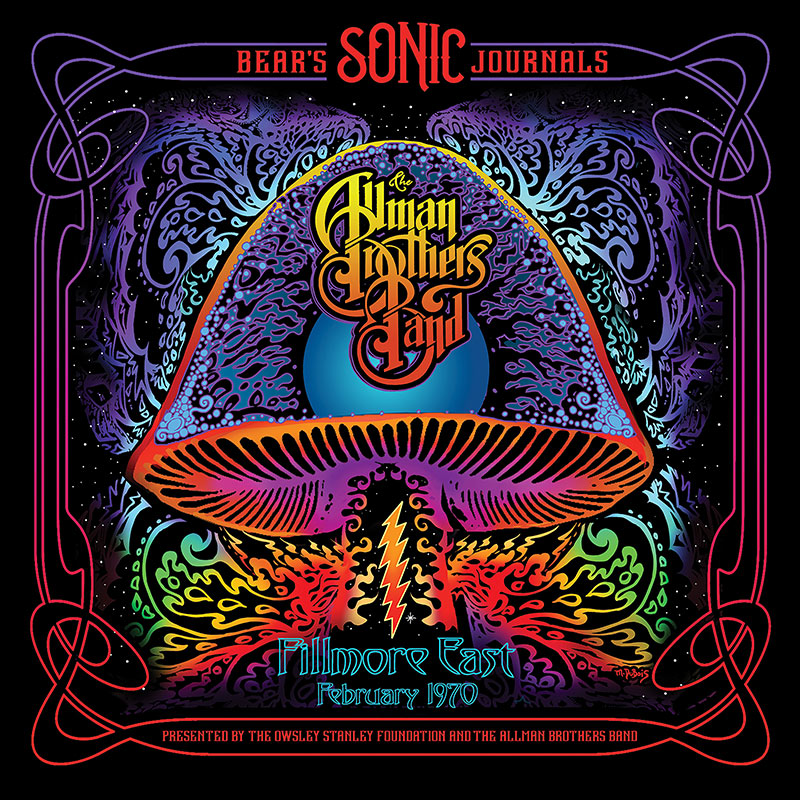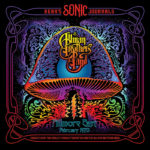
February of 1970 for The Allman Brothers Band marked the ensemble approaching their one-year anniversary as a unit. The group toured coast-to-coast in those first 12 months, supporting a debut album, and developed a live repertoire that prized improvisation within a revolving set of songs. When the sextet arrived in New York City in February for a three-show run at the Fillmore East on a bill with the Grateful Dead, it was a friendly collision of a couple of bands still in a fairly primary stage of creating their definitive sounds and reputations as two of America’s finest artists.
Not surprising in this very early period for the Brothers that they traveled without their own soundman, prompting the Dead’s Owsley Stanley, known affectionately in their circle as Bear, to offer his services for the trio of performances. In addition to mixing the in-house sound, Bear recorded the Dead’s shows, and for the Allman’s sets, as well, he turned on the tapes. Though a single-disc compilation of these Brothers performances was released in 1997, now long out-of-print, the seven songs have been re-examined, remastered, and issued once again as part of Bear’s Sonic Journals: Fillmore East 1970, with the Owsley Stanley Foundation’s website also making the raw tapes in their entirety available for download on its website.
Technically, the music isn’t new. It’s the same sequence and performances as the 1997 version, but it does sound a whole lot better than 20 years ago, and for that alone it’s worth investing in the update. “In Memory of Elizabeth Reed” opens the show, as it does the other two, as a freshly-crafted song still honing its identity. Duane Allman and Dickey Betts work their always-superb guitar magic, but it’s more close-hand, rather than the larger, more elaborate piece it would soon become. This version, like most of the hour-plus disc, is drawn from the third night, February 14, with “Statesboro Blues” and “Trouble No More” coming from February 11th. All of such details are in the extensive booklet included that features essays from Allman Brothers Band chief historian John Lynskey, and the Foundation’s Starfinder Stanley, as well as the original liner notes from Bear, and a look specifically at the trio of Elizabeth Reeds captured during the stay.
For any fan, it’s a delightful amount of information that accompanies the typically smoking, still evolving performances by the Brothers. Gregg Allman sounds particularly youthful as the 22-year-old he was, while already possessed by that unmistakable road-beaten voice of the blues, peaking on “Outskirts of Town.” Though not as fully realized as they would be for the Fillmore East appearances a year later that produced the monumental At Fillmore East album, there are glimpses of what’s to come; learning to spread their wings on a rising “Whipping Post,” and the 30-minute instrumental “Mountain Jam” that was the band’s nightly showcase for all of their burgeoning talent. And, with the online downloads, a fuller, broader picture of this place in time for the Brothers can be appreciated; as preservation not only of three historic Fillmore East performances, but also as an introductory look at an impressive new band from Macon, Georgia building its incredibly lasting strength.



No Comments comments associated with this post